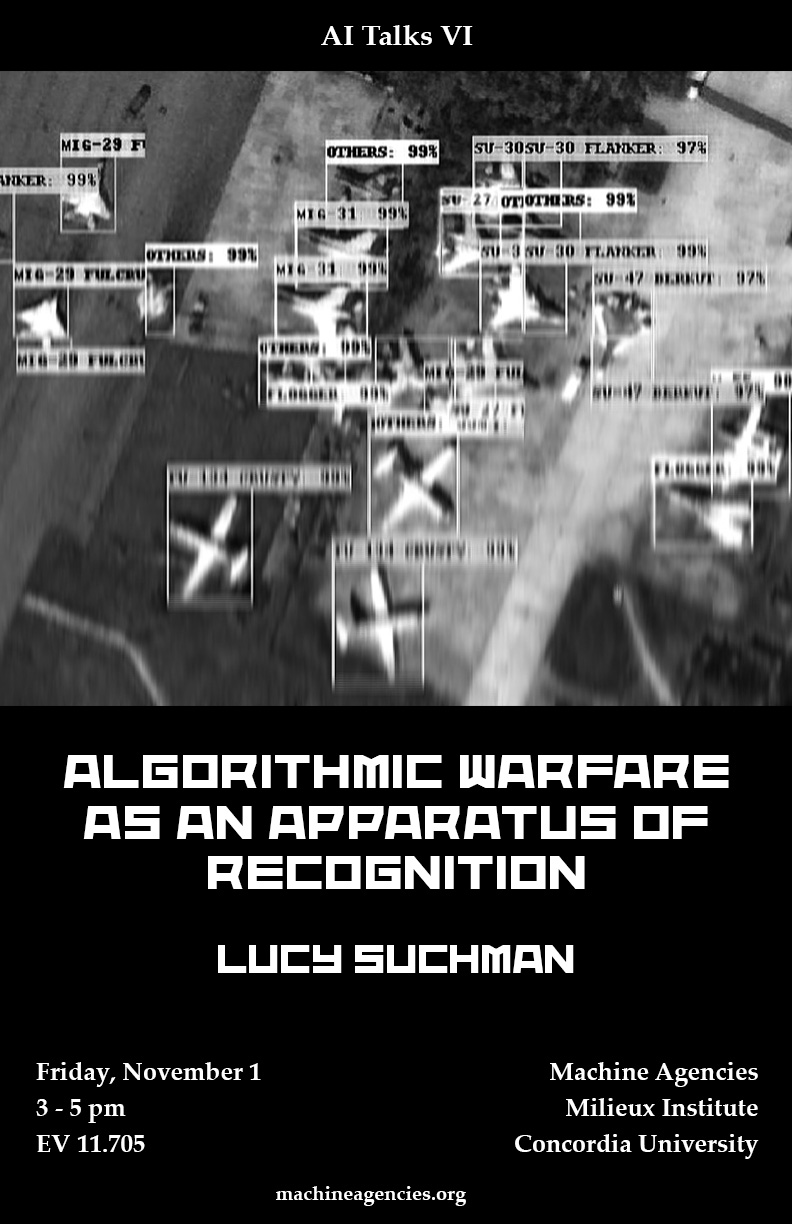
- This event has passed.
Algorithmic Warfare as an Apparatus of Recognition: Talk by Lucy Suchman
2019-11-01 | 15:00 - 17:00

In June of 2018, following a campaign initiated by activist employees within the company, Google announced its intention not to renew a US Defense Department contract for Project Maven, an initiative to automate the identification of military targets based on drone video footage.
Defendants of the program argued that that it would increase the efficiency and effectiveness of US drone operations, not least by enabling more accurate recognition of those who are the program’s legitimate targets and, by implication, sparing the lives of noncombatants. But this promise begs a more fundamental question: What relations of reciprocal familiarity does recognition presuppose? And in the absence of those relations, what schemas of categorization inform our readings of the Other?
This talk is presented by the Machine Agencies group.
